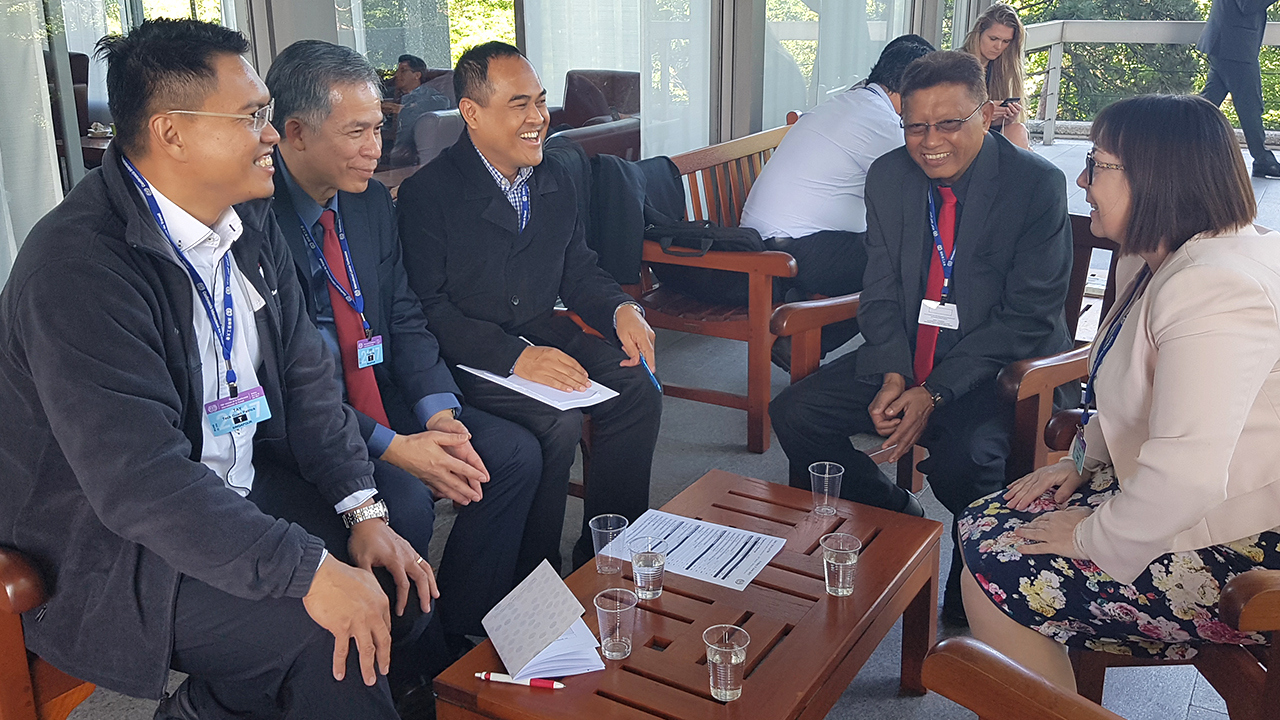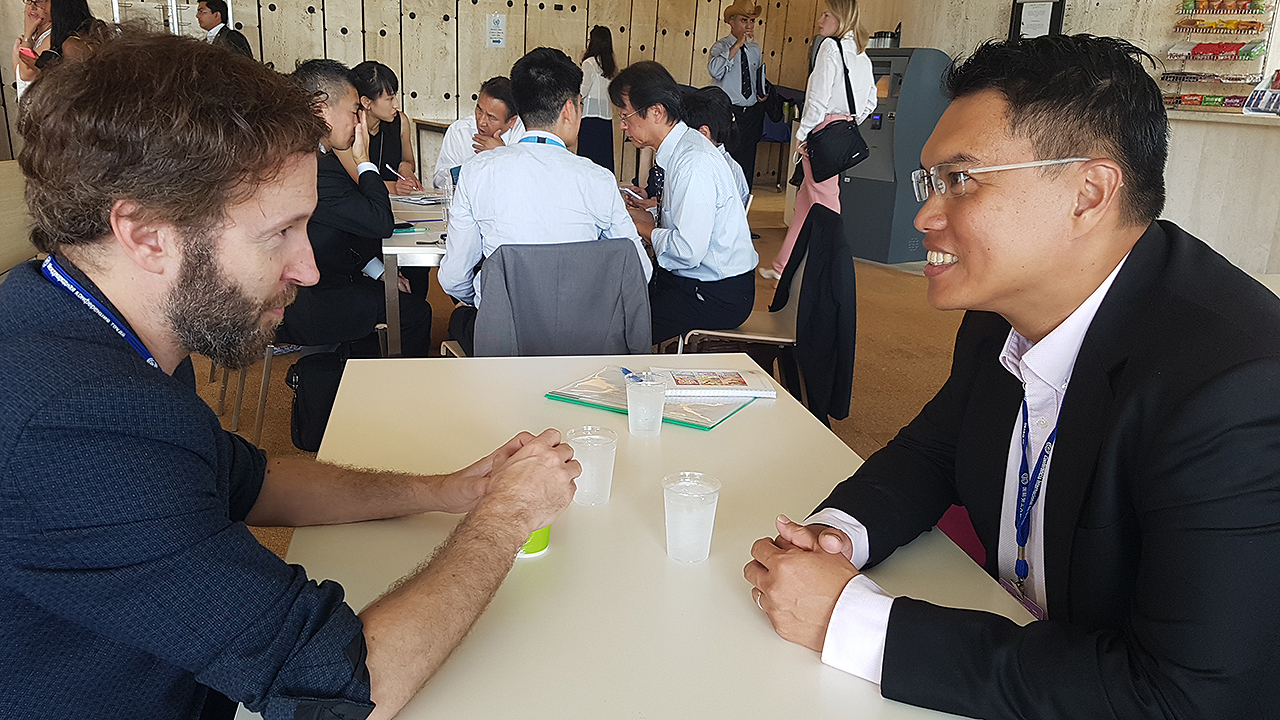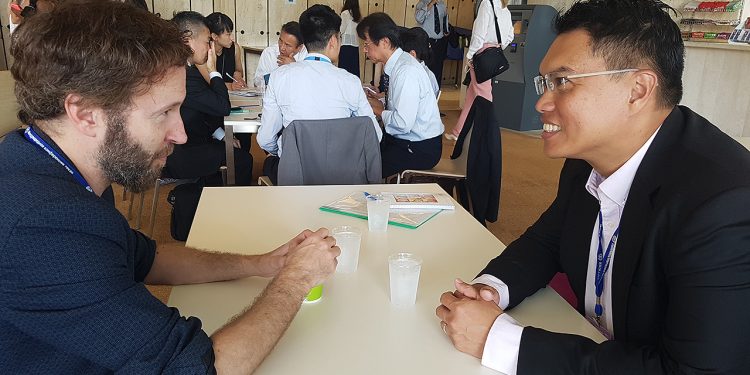Representing NTUC and our Labour Movement, several union leaders and I had the excellent opportunity to interact with many fellow labour movement leaders and analysts from across various jurisdictions in Asia, Europe as well as the Scandinavian countries during the week-long annual International Labour Conference (ILC) held at the International Labour Organization’s (ILO) HQ in Geneva the last two weeks in June. I am deeply appreciative of our fellow brothers and sisters’ frank and honest sharing as the engagements elucidated the various global labour developments I have been reading on both online and print media for the past six months.
Key Issues, Challenges and Observations
From these engagements, I observed that while some issues pervaded all countries, others were country specific due to various reasons like Brexit / future of UK / single market; German elections; new leadership in France and the Netherlands; and general interest by various countries on the One Belt One Road developments in China and its impact on their countries and workers.

1) Universal Basic Income (UBI) – Boon or bane?
The UBI is a two-year pilot driven by the Finnish government to examine whether the UBI would alter the mindset of the unemployed to take on work. This pilot started in January 2017 and involved 2,000 randomly-selected unemployed people receiving an unconditional payout 560 Euros (nett of tax) monthly. When I spoke to one of their labour movement representative, the sensing is that the UBI will not be as useful in replacing the current Finnish social security system and unemployment benefits.
Although the European Union (EU) countries are also examining the UBI’s feasibility, there is general concern about its efficacy in encouraging work. There are pros and cons as they say but some opine that the UBI carries more bane than boon due to the monetary resources involved (someone has to pay for it) and the indeterminate amount of monies that would suffice because of the diverse needs and sizes of different families.
In fact, many traditional social welfare states in Europe like the United Kingdom and Germany are starting to pursue what they called ‘active labour market policies‘. These policies are to ensure the unemployed take active and concerted efforts to find work, apply for work or embark on some form of training, so as to land themselves in jobs or see themselves having their social welfare / unemployment benefits being reduced, curtailed or delayed.
The union leaders I spoke with are well aware of the issues confronting their countries and economies, and have chosen the unpopular choice of embracing these change. They are well aware that mindset change of labour movements and workers are crucial to ensure workers stay employed and employable.
2) Robo-tax – Not really feasible?
With digitalisation, mechanisation, automation and robotisation, there was a suggestion by the ‘left’ wing in certain parts of EU earlier this year to implement a robo-tax on businesses for the use of robots, which may result in massive redundancy of workers. However, the various labour leaders I met are unlikely to support this move. They are genuinely concerned about the effects of such a tax on companies during cyclical downturns and have opined that taxing on profits and sharing of gains has a much better effect and outcome. This augers well for them and is a reminder for us that labour movements across the developed world are quickly coming to realisation of the importance of jobs, jobs and jobs.
3) Freelance and shared economy – Laws may change slower than the changes happening
All the labour movements we spoke with acknowledge and share that they are still thinking hard on how to overcome the challenges of the growing number of freelance and self-employed workers. These workers may be drivers for Uber or online delivery platforms; or those who offer their various skills, expertise and services online or offline. Even at the ILO level, they are thinking of how to ensure that this category of the working population can be better protected and looked after of their basic rights like social security, pensions, health and work injury insurance, and basic employment rights.
In some jurisdictions, unlike Singapore, their unions have been allowed to represent both collectively and individually the rights of these freelance and self-employed workers. The United Kingdom Trades Union Congress shared that while they have won at the High Court with it adjudicating that Uber drivers are in some form of employment relationship, they are also eagerly watching how the Court of Appeal is going to interpret the employment status of Uber drivers. For one, at the EU, it is clear and decided that it is not anti-competitive for such shared economy workers to come together to collectively bargain for their salaries.
On the whole, because of the nature, diversity and rapidity of these forms of work and the fact that they run against traditional contract law concepts of independent contractors versus employees, the general consensus is that the legislative framework will take time before we will see any new laws governing freelance workers but is definitely something that will develop and evolve in the coming years. In the meantime, the general agreement is to find ways to better help, look after and organise these workers and ensure we find ways to have their basic employment rights protected.

4) Future of Work – Disruption and digitalisation
At the ILC and ILO, the Future of Work is a big and important agenda in many respects. The concern of job losses due to digitalisation and artificial intelligence is real. The eagerness to grow new jobs and opportunities is also obvious. Some of them were more advanced and are even envisaging how the digital space and artificial intelligence may create issues of discrimination by algorithm or dismissal by algorithm.
The response from these developed economies is that the 4th Industrial Revolution is very much similar with the 3rd Industrial Revolution (automation, mechanisation and robotisation) except this time with greater speed and rapidity of changes due to digitalisation. The unions recognise the need to identify the future jobs and the need to retrain and equip their workers with the skills for the new jobs including changing mindsets at all levels.
Conclusion
Although Europe has its own set of uncertainties and challenges, their labour movements are aware of the clear and present dangers lurking around the survivability and sustainability of economies and businesses; the future of jobs and the need to look after and organise workers. The above observations have implications on the labour movement, our tripartite partners and Singapore.
First, it is a stark reminder that Singapore as a developed country (like many of these advanced economies) and our tripartite partners need to continually stay ready, relevant and resilient – ready with the new skills, relevant to the new jobs and resilient to the new changes. It is a call-out to employers and workers alike to up-skill, re-skill, deep-skill and second-skill our workers. Not just the work-related/hard skills but also the life skills to stay able, agile and adaptable. Referencing our demographic changes and labour market reports, I am most concerned and we therefore need to continue to pay close attention to our ageing workforce, our rising professionals, managers, executives and technicians (PMET) populace (54 per cent currently) as well as the at-risk jobs (jobs that may disappear or become obsolete). At the same time, we should continue to find opportunities to throw light on what and where the new jobs are and the skills needed.
Second, the difference between the 3rd and 4th Industrial Revolution is that the treadmill we are running on is now at a much faster speed. As the new adage goes, it is the ‘fast fish that will devour the slow fish’ and not ‘the big fish that eats up the small fish.’ In all things, speed is crucial. Speed to market of products/services, speed to market of inventions/innovations as well as speed to market of skills/learning are all critical success factors for us to keep up with the treadmill.
Third, what is happening across the globe suggests that we are on the right track with our various policies, programmes and fundings to help workers adapt and grow and stay employed and employable. This includes our national programmes like SkillsFuture, Adapt and Grow and Industry Transformation Maps; initiatives and new capabilities within the Labour movement such as looking into future jobs, skills and training, helping to drive productivity and building our U Career Network and partnerships; and tripartite efforts like our tripartite workgroup to examine issues surrounding the emergence of freelance workers.
Finally, I submit that the key is implementation and execution to ensure the time, energies and resources we expend will benefit workers, businesses and the Singapore economy in their own ways. In short, workers, employers, government and society as a whole need to shift paradigms and mental models, break bottle-necks and straighten kinks to achieve breakthroughs and derive positive outcomes.
Patrick Tay
This is a post by NTUC Assistant Secretary-General and Director, Future Jobs, Skills and Training, Patrick Tay. Any extracts should be attributed back to the author. 23 June 2017.

